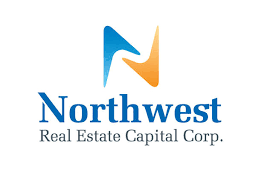How this Nonprofit Transformed Healthcare Experience which Reengages Employees in Company!
Northwest Real Estate Capital Corp.’s health insurance costs were too expensive, and they needed a sustainable solution.
Problem: Traditional health insurance was far too expensive for employer and employees; annual increases were 15-30% year-over-year with traditional health insurance
Solution: A direct partnership agreement with their local healthcare providers.
Results: A new approach to healthcare that reduced costs, allowing Northwest Real Estate Capital Corp. to transition to a proactive, wellness-based health plan.

Northwest Real Estate Capital Corp.’s Healthcare Story
Three years ago, Northwest Real Estate Capital Corp. was the unsatisfied user of a traditional health insurance option.
As a nonprofit devoted to providing affordable housing, they are an organization that cares about their community’s wellbeing. However, traditional health insurance made it hard to deliver meaningful healthcare to their employees.
“It was essentially a failed plan for us,” said Noel Gill, EVP of Northwest Real Estate Capital Corp. “The increases were anywhere from 15-30 percent year over year; our last increase was around the 30 percent range. We no longer could absorb those costs.”
In addition, Northwest Real Estate Capital Corp. had no insight into where those increases were coming from, or what health-related issues were driving the costs.
“It reached a point where it was far too expensive for us, the employer, and the employees.”
-Noel Gill, EVP
That’s when Noel met HealtH2Business, who outlined a new way of approaching employer healthcare. Noel agreed to give it a try, and found more transparent, accountable, and affordable healthcare.
As Noel made the decision to leave the traditional carriers, he made two important changes:
First, he decided to run his health plan from a completely separate operating account, so that he could analyze and fully understand the financial implications of the change.
Second, he chose to fund this health operating account (to his aggregate attachment point) as if the year was going to be the worst-case scenario. In terms of funding, he said this amount “was just a little bit higher than what we’d been paying out to the [traditional insurance carrier].”
“About ¾ through our first year, we were working on the enrollment going into the second year and that’s when I realized – this is amazing,” Noel said. “This whole thing is working. It’s awesome!”
This is when Noel realized he had over $290K saved in his health operating account – money he says normally would have just been paid to the traditional carrier. Now, this money could be redeployed to make the future of his company more stable and the healthcare benefits better for his employees.
“Going into our second year, that’s when we made some of our largest adjustments to plan design. It gave me so much excitement being able to make those changes,” he said.
“[The direct partnership] put us in the financial driver’s seat.”
- Noel Gill, EVP
Even as their health approach evolves and the benefits they provide become better, Northwest Real Estate Capital Corp. continues to fund their account to their aggregate attachment point and reserves continue to grow.
This has allowed Noel and his team to implement their vision: a preventive, wellness-based approach to health care.
“I think [the direct partnership] has become a really great relationship for us… a win-win for everybody,” Noel said.
A direct partnership is a more hands-on approach to healthcare. In a direct partnership, the employer enters into a direct business arrangement with their local healthcare provider. This arrangement outlines how the company will access and pay for healthcare.
WHAT IS A DIRECT PARTNERSHIP?
A direct partnership is simply a direct business relationship between an employer and their local healthcare provider that outlines how to access and pay for healthcare.
Often, companies access healthcare through Blue Cross, Cigna, Aetna, Humana, or other insurance arrangements. A direct partnership is an alternative to those carriers; it is not an insurance product. Instead, your company and the healthcare provider partner to create an agreement that is sustainable, affordable, and truly beneficial.
Today, Healthcare Creates a Positive Feedback Loop
The direct partnership provides more transparency and is a more sustainable solution.
This transparency has allowed Northwest Real Estate Capital Corp. to realize their vision of preventive healthcare.
“Quickly, I learned that the preventive side was the big takeaway. If we could build in the preventive side up-front, and really get our employees to buy in, that’s where the plan really begins to win for the company.”
This focus on preventive care was a transformational change for Northwest Real Estate Capital Corp.
Now, NWRECC knows the real health challenges their employees face, and design a plan to address them.
Instead of having a health insurance plan that simply responded to employee needs as they arose, Northwest Real Estate Capital Corp. was gaining insight into their employees’ true health needs and the associated costs. Now, they help their employees take better care of themselves and have removed financial barriers that previously might have discouraged their employees from visiting their local doctors.
This preventive approach meant that employees could feel empowered in their healthcare decisions, and that Northwest Real Estate Capital Corp. could encourage a healthier, stronger, more confident employee base.
“We want to encourage our employees to actually address their healthcare needs in a preventive manner versus a reactive manner,” Noel said.
“It’s not so much time spent on the plan and dealing with providers, and dealing with networks. It’s now about helping employees understand that what we’re trying to do is help prevent health crisis.”
- Noel Gill, EVP
This preventive approach is a positive feedback loop: because employees are taking better care of themselves, both the company and employees are experiencing additional cost-savings.
When asked how their employees have responded to no longer being part of a traditional network, Noel said, “I think they’re beginning to see that, when they talk to their friends and family, they hear about premiums going up and deductibles being adjusted.
“What my employees see is that we have not given a price increase in premiums since we moved…and they have watched their deductible go down by $2,000.”
Northwest Real Estate Capital Corp. has not given a price increase to their employees since they transitioned.
Due to their partnerships and efficiencies built into their plan, Northwest Real Estate Capital Corp. is able to continue adding more and better benefits for their employees, including: premium holidays, $25 monthly premiums for the first three kids added to the plan, covering bariatric surgery, and covering STEM cell treatments for certain musculoskeletal injuries.
The healthcare improvements have also resulted in happier employees and a better company culture.
When asked if the direct partnership has improved company culture, Noel’s answer is clear: “Absolutely.”
“As the Executive Vice President, you look at things that make an organization attractive to employees and keep employees there. What are those things? Culture, benefits, and pay.”
Since Northwest Real Estate Capital Corp. is a non-profit, pay is not typically one of the central things that attracts employees. Instead, they focus on benefits, retirement, and culture.
“Three and a half years ago, I wanted my health plan to be part of our competitive advantage,” Noel said.
Late last year, Northwest Real Estate Capital Corp. hired a new HR Manager. When Noel asked her why she joined, she said their health plan was a key factor.
“When your HR manager – someone who really understand health benefits – tells you that ‘I came to work here at a lower rate because of your health plan,’ that’s pretty amazing,” Noel said. “There’s no bigger compliment than that.”
Another benefit? Northwest Real Estate Capital Corp. has complete flexibility and control of their healthcare decisions.
“[Traditional health insurance providers] had really no interest in controlling costs, educating people, or spending any time on us,” Noel said.
“Those health insurance companies are unwilling to share any insights about what kind of health issues our company was actually having,” Noel said. “That first year, we took the information we had year-to-date to see what kind of issues our employees were dealing with.”
“We looked at issues of heart disease, high blood pressure, heart attacks, all kinds of things. We took that information and applied it to our plan design so that we could create something that would actually benefit our employees.”
“Now, I can have a real conversation about wellness.”
The Direct Partnership Creates a “Great Environment”
Noel recommends this approach to healthcare to other companies, particularly other nonprofits.
“The reason being is that number one, you really begin to understand what your cost is to the plan,” When you’re able to begin looking at things from that perspective, it creates such a great environment.
An environment where there is “opportunity to educate and to get your employee base to understand how to access and best utilize the plan and even forward thinking about how we want to begin moving forward to the preventive side of things”
When NWRECC accessed healthcare through a major insurance carrier, they became accustomed to benefits decreasing every year as costs increased. Since transitioning to a direct partnership, Noel and his team have finally found a healthcare solution they can stick with for the long term.
“Would I change anything? No. Nothing. I love it,” Noel said.

